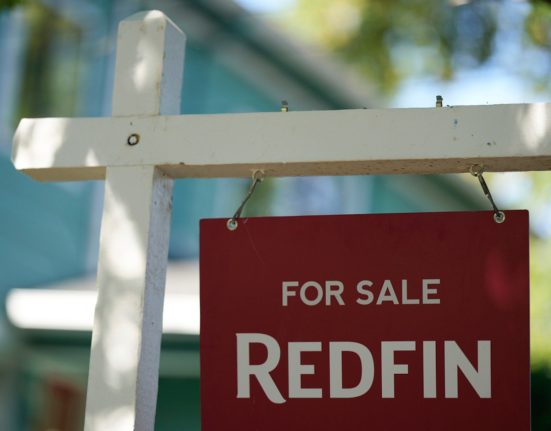Andrew Harrer/Bloomberg
A bipartisan housing bill advanced by the Senate Committee on Banking, Housing, and Urban Affairs lifts the cap on housing credits, bonds, and rating incentives, which are touted as wins for increasing the housing supply and making home ownership more affordable.
“For far too long, Congress believed this problem was too big to solve,” said Sen. Tim Scott R-S.C., the chair of the Banking Committee.
“Today, we’re taking not a step – but we’re taking a leap in the right direction in a bipartisan fashion. Many people around the country who are frustrated with the way we do American politics wonder, is there any issue that brings this nation together and I’m here to say, halleluiah! We have found one – it is housing.”
The ROAD Act passed the committee with a unanimous vote by melding parts, pieces, programs, and provisions into a 19-section bill that enjoys wide support.
“I’m proud to have worked with Chairman Scott on the first bipartisan housing legislation to move through the Banking Committee in over a decade.,” said Sen. Elizabeth Warren, D- Mass.
One of the main provisions of the bill would “increase the cap on banks’ public welfare investments, a category that includes housing credits and housing bonds, from 15% of a bank’s capital and surplus to 20%.”
Advocates believe lifting the cap will translate into higher liquidity in the housing credit and housing bond markets.
The legislation draws support from the National League of Cities, the National Association of Home Builders, the United States Conference of Mayors, and several trade groups representing the banking, real estate, and affordable housing industry.
“We especially appreciate a number of proposals in the ROAD to Housing Act that will help support affordable housing investment using the Low-Income Housing Tax Credit, which was recently expanded as part of One Big, Beautiful Bill and remains the primary driver of affordable housing supply in the U.S.,” said Emily Cadik, CEO of the Affordable Housing Tax Credit Coalition.
Public transit also comes out ahead as the bill rolls in rating incentives for projects that demonstrate pro-housing policies near public transit infrastructure.
“The legislation provides positive rating adjustments for public transit projects that reduce regulatory barriers to housing development, including affordable housing,” said Paul Skoutelas, CEO and president of American Public Transportation Association.
“This approach can help increase ridership and support more efficient land use patterns around public transit investments.”
The provision in the bill would allow a one-point positive adjustment on the rating scale used by the Federal Transit Administration in its Capital Investments Grants program if the project features pro-housing policies in areas located within walking distances or are accessible to transit facilities.
The bill has a companion piece in the House of Representatives that has been in a holding pattern since last October. A markup is tentatively scheduled for this fall when both Houses return from the August recess.







